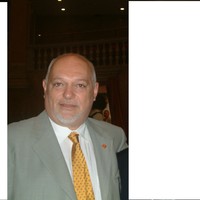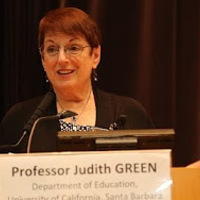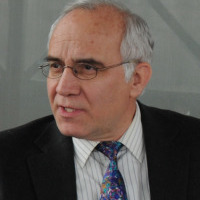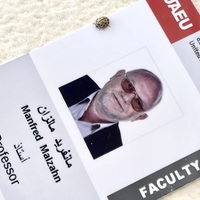
Paolo E. Balboni
Paolo E. Balboni
balboni@unive.it
Born in 1948 in Italy, primary school in Argentina e Chile, high school in Bologna, graduate at the University of Venice; two Fulbright scholarships in the USA.
- University of Venice: researcher in 1984-1992
- University for Foreigners in Siena: professor of IFL methodology; provost, director of the Language Centre (1992-1995).
- University of Venice: since 1995, full professor of Language Teaching Methodology; head of the Department of Language Sciences (2000-2002); dean of the Faculty of Languages (2002-2005); president of the Language Centre (since 2008); director of the Research centre on Language Teaching (since 2001).
- Other institutions: president of the national association of language teachers, ANILS (1993-2001); president of the Scientific Society of Language Teaching Research and Educational Linguistics, DILLE (2001-2015); president of the Fédération Internationale des Professeurs de Langues Vivantes, FIPLV (sine 2016)
- Author of over 150 essays and some 25 volumes dealing with the teaching of first, second, ethnic and foreign languages.
- Director of two language teaching methodology journals.
balboni@unive.it
Born in 1948 in Italy, primary school in Argentina e Chile, high school in Bologna, graduate at the University of Venice; two Fulbright scholarships in the USA.
- University of Venice: researcher in 1984-1992
- University for Foreigners in Siena: professor of IFL methodology; provost, director of the Language Centre (1992-1995).
- University of Venice: since 1995, full professor of Language Teaching Methodology; head of the Department of Language Sciences (2000-2002); dean of the Faculty of Languages (2002-2005); president of the Language Centre (since 2008); director of the Research centre on Language Teaching (since 2001).
- Other institutions: president of the national association of language teachers, ANILS (1993-2001); president of the Scientific Society of Language Teaching Research and Educational Linguistics, DILLE (2001-2015); president of the Fédération Internationale des Professeurs de Langues Vivantes, FIPLV (sine 2016)
- Author of over 150 essays and some 25 volumes dealing with the teaching of first, second, ethnic and foreign languages.
- Director of two language teaching methodology journals.
less
Related Authors
Judith L Green
University of California, Santa Barbara
Javier Díaz Noci
Pompeu Fabra University
Albert Bastardas-Boada
Universitat de Barcelona
David Seamon
Kansas State University
Louis de Saussure
University of Neuchâtel
Armando Marques-Guedes
UNL - New University of Lisbon
Eitan Grossman
The Hebrew University of Jerusalem
John Sutton
Macquarie University
Manfred Malzahn
United Arab Emirates University
Carlos A. Scolari
Pompeu Fabra University
InterestsView All (9)










Uploads
Papers by Paolo E. Balboni
This paper explores the possibility of defining what is good and thus ethically sustainable in language instruction. That is, it analyzes to what extent and how one would engage in an ethical evaluation of approaches, methods, and practices of teaching and learning languages. This evaluation is carried out via the field of study known in Italy--albeit with nuances and meanings that are at times very different--as "educazione linguistica," roughly “language instruction.” To undertake an ethical reflection on the actions of language instruction and the sustainability of systems of language teaching methodology, it is first necessary to clearly define language instruction as an interdisciplinary research area and concept, and to identify its key elements and their specific objects of study.
Este ensayo plantea la posibilidad de definir lo que es bueno –y, por tanto, éticamente sostenible– en la educación lingüística. Esto es, analiza en qué medida y de qué forma habría que actuar para una evaluación ética del planteamiento, del método y la práctica de la enseñanza/aprendizaje de idiomas. Dicha evaluación se examinará por aquel campo de estudios que en Italia se denomina, con matices y referencias a veces muy diferentes, educación lingüística. La identificación de una definición clara de este ámbito de investigación interdisciplinario y del mismo concepto de educación lingüística, así como de sus elementos clave y de sus objetos de estudio específicos, parece que es una operación necesaria y un requisito imprescindible para una reflexión ética acerca de las acciones de la educación lingüística, incluso en términos de sostenibilidad del sistema glotodidáctica.
http://immi.se/intercultural/